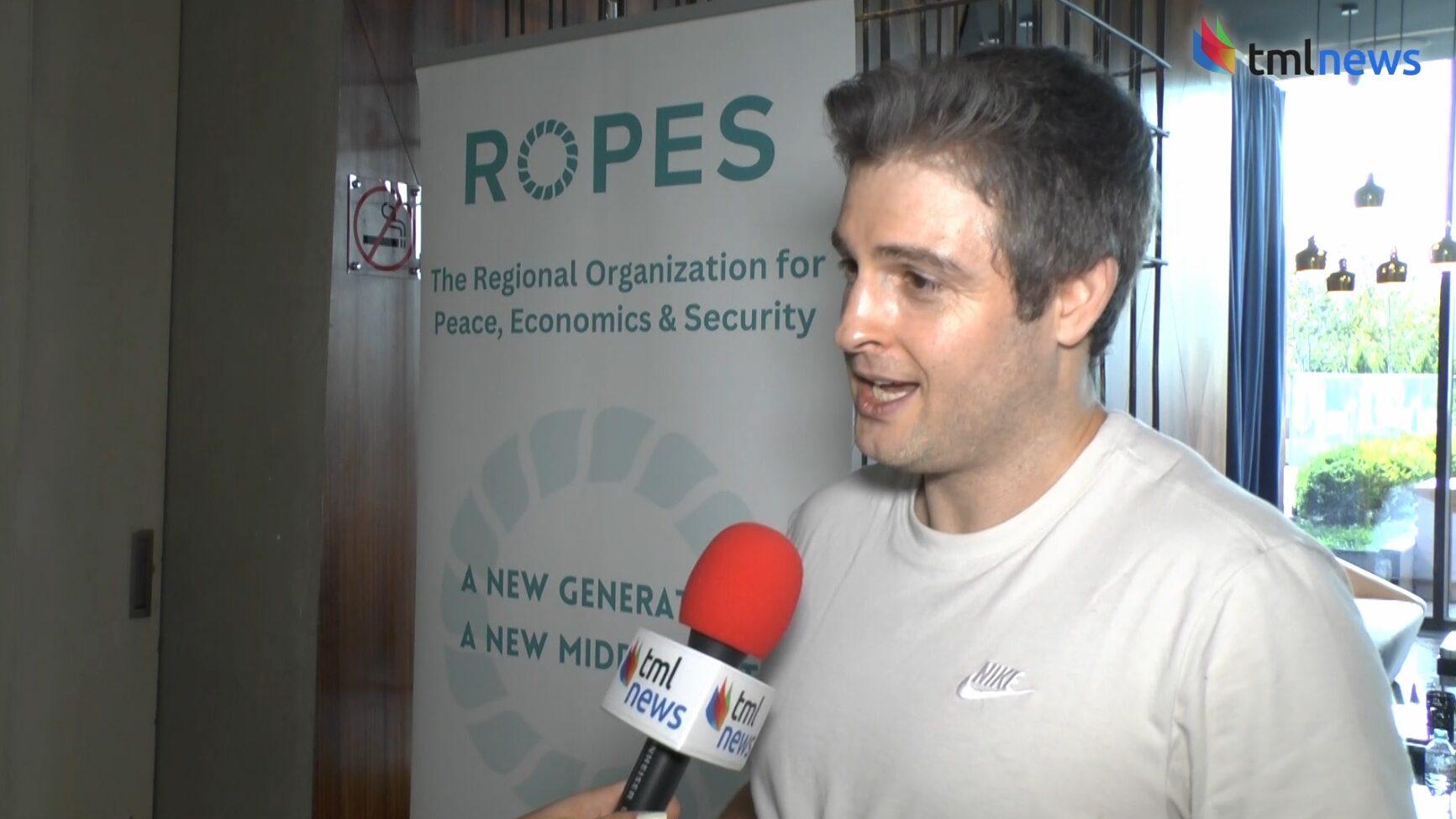Can Millennials and Gen Z Build Israeli-Palestinian Peace Where Others Have Failed?
An Israeli organization focused on mobilizing young people and energized by the Abraham Accords hopes to do peace differently
The Regional Organization for Peace, Economics & Security, ROPES, is an Israeli organization trying to build Palestinian-Israeli peace where others have failed.
It does this by bringing young people from across the region together in neutral spaces, and by using the peace accords between Israel and Bahrain, Morocco, and the United Arab Emirates as a framework.
The Abraham Accords were signed in 2020 and are the first peace deals between Arab countries and Israel since the 1994 Jordan-Israel agreement.
ROPES executive director Ksenia Svetlova, a former Israeli lawmaker, told the Media Line that her group is “creating a network of engaged and emerging leaders from across the Middle East to rally around the idea of a post-conflict region.”
Svetlova and her colleagues are planning for a Middle East that recognizes both Israel and a future Palestinian state. High-level efforts to achieve Palestinian-Israeli peace are stalled, but Svetlova believes civil society connections can trigger meaningful change.
This kind of joint venture, working together, is amazing, it’s the best way to get to know the other side and to get to know the person behind the stigma
Chen Raviv, a young Israeli who met Rawan Odeh, a Palestinian from the town of Hawara in the West Bank, at a ROPES event two years ago in Vienna.
Raviv persuaded Odeh to work with him in the social impact division of the Israeli software giant, Monday.com. Rawan now works for the Tel Aviv-based company in Washington, DC, and ROPES hopes to create more such partnerships.
Raviv asserted that these partnerships also have a positive impact on the peace-building process noting that many Israelis never worked with Palestinians from the West Bank and Gaza before. “This kind of joint venture, working together, is amazing, it’s the best way to get to know the other side and to get to know the person behind the stigma,” he told The Media Line.
Svetlova said ROPES participants like Raviv and Odeh are “rising stars” in their own societies who will soon be in positions of influence. One ROPES conference participant, for example, has already become a member of parliament in their own country, she pointed out.
This holiday season, give to:
Truth and understanding
The Media Line's intrepid correspondents are in Israel, Gaza, Lebanon, Syria and Pakistan providing first-person reporting.
They all said they cover it.
We see it.
We report with just one agenda: the truth.


Svetlova believes ROPES participants will increasingly rely on this cross-regional network of friends with whom they agree on most issues. This network, in turn, will make it easier for members to promote a peaceful resolution to the remaining Arab-Israeli conflicts.
This year’s ROPES summit took place in Tbilisi, Georgia, where participants from Egypt, the Palestinian territories, Syria, Tunisia, and Qatar, among others, attended “speed dating” sessions with one another to listen and learn.
The summit also included brainstorming sessions in which smaller groups thought creatively about the Arab-Israeli conflict from different angles.
Einat Levy, a researcher of Israeli-Morocco relations with Mitvim, an Israeli think tank, told The Media Line that the Abraham Accords had constructed a top-down diplomatic framework for cooperation the needs to be filled with people-to-people connections.
Now, Levy said, ordinary people can take advantage of that opening to create new, meaningful connections. People-to-people links between Israelis and Moroccans preceded the Abraham deal, and she thinks the same could work elsewhere.
Levy believes that input from people living elsewhere in the Middle East can help push Palestinian-Israeli relations in a positive direction. A move from “bilateral relations to multi-multilateral frameworks” adds flexibility, new incentives, and different motivations, and builds trust, she said.
Fear of what the folks back home will say is still an issue, however, and many of the Tbilisi participants declined interviews for fear of repercussions.
These concerns are “a challenge for everyone,” said Ibrahim Abu Ahmad, ROPES’ director of alumni relations and tourism. In many places, a black-and-white mentality still prevails: “You’re either supportive of the Palestinians, or you’re a ‘normalizer,’ which is considered a traitor.”
Abu Ahmad thinks that this binary view of the world needs to change.” We need to understand and grasp complexity,” he says, as “the region [itself] is complex.”
Abu Ahmad, an Israeli citizen of Palestinian background, lives in Haifa, a mixed Arab and Jewish city.
I strongly believe that partnerships are the solution to the conflict between Israelis and Palestinians, and between all the countries in the Middle East
Samer Zedan, a political campaigner for the United Arab List, an Israeli political party, said the party’s formal participation in a coalition government from 2021 to 2022—a first in Israeli politics—had given him an applied lesson in Arab-Jewish cooperation.
“I strongly believe that partnerships are the solution to the conflict between Israelis and Palestinians, and between all the countries in the Middle East,” Zedan told The Media Line.
ROPES also wants to bring more women into the conversation. “Women have been excluded for a long time,” said Tamar Melzer, a social impact consultant. As a result, “we have gotten nowhere.”
When women are brought to the table, Melzer said, the conversations are more practical and focused on understanding the other’s views. That, she said, “is where the progress really happens.”
Ben Birnbaum, ROPES founder, and president said the time had come for a new generation to handle Middle East conflict resolution. “The older generation has failed, let’s face it,” Birnbaum told The Media Line. “It now falls to the millennials and even Gen Z to solve this conflict,” he said.
Veteran peace activist Gershon Baskin, now director of Holy Land Bond, a joint Arab and Jewish residential initiative, said he was unsure what a new generation could do differently. Nonetheless, “the torch is being passed to the next generation.”

